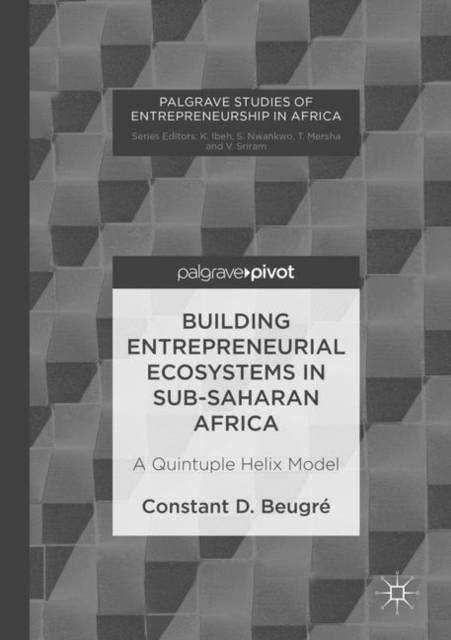
Door een staking bij bpost kan je online bestelling op dit moment iets langer onderweg zijn dan voorzien. Dringend iets nodig? Onze winkels ontvangen jou met open armen!
- Afhalen na 1 uur in een winkel met voorraad
- Gratis thuislevering in België vanaf € 30
- Ruim aanbod met 7 miljoen producten
Door een staking bij bpost kan je online bestelling op dit moment iets langer onderweg zijn dan voorzien. Dringend iets nodig? Onze winkels ontvangen jou met open armen!
- Afhalen na 1 uur in een winkel met voorraad
- Gratis thuislevering in België vanaf € 30
- Ruim aanbod met 7 miljoen producten
Zoeken
€ 69,95
+ 139 punten
Uitvoering
Omschrijving
Africa suffers from two main diseases: poor management and a lack of vibrant entrepreneurial activity. The continent has the raw materials, the people, and the potential to be developed, and yet there remain barriers that prevent it from bettering itself.
To promote entrepreneurship as an engine of economic development and growth, the author has developed a Quintuple Helix Model which advocates mutual cooperation and information sharing among the five helices and provides valuable guidelines to policymakers on how to build entrepreneurship ecosystems in sub-Saharan Africa. It goes on to examine the roles that government, donors, and public and private sectors play and how Africans themselves might take the development of entrepreneurial societies into their own hands.
The book includes seven chapters that emphasize the key role that each of the five components could play in the development of entrepreneurial ecosystems. Entrepreneurship scholars, policy makers, and national and local governments of sub-Saharan Africa will value this insight as they strive to create a more favorable landscape for their citizenry.
To promote entrepreneurship as an engine of economic development and growth, the author has developed a Quintuple Helix Model which advocates mutual cooperation and information sharing among the five helices and provides valuable guidelines to policymakers on how to build entrepreneurship ecosystems in sub-Saharan Africa. It goes on to examine the roles that government, donors, and public and private sectors play and how Africans themselves might take the development of entrepreneurial societies into their own hands.
The book includes seven chapters that emphasize the key role that each of the five components could play in the development of entrepreneurial ecosystems. Entrepreneurship scholars, policy makers, and national and local governments of sub-Saharan Africa will value this insight as they strive to create a more favorable landscape for their citizenry.
Specificaties
Betrokkenen
- Auteur(s):
- Uitgeverij:
Inhoud
- Aantal bladzijden:
- 108
- Taal:
- Engels
- Reeks:
Eigenschappen
- Productcode (EAN):
- 9781349954049
- Verschijningsdatum:
- 5/07/2018
- Uitvoering:
- Paperback
- Formaat:
- Trade paperback (VS)
- Afmetingen:
- 148 mm x 210 mm
- Gewicht:
- 154 g

Alleen bij Standaard Boekhandel
+ 139 punten op je klantenkaart van Standaard Boekhandel
Beoordelingen
We publiceren alleen reviews die voldoen aan de voorwaarden voor reviews. Bekijk onze voorwaarden voor reviews.











